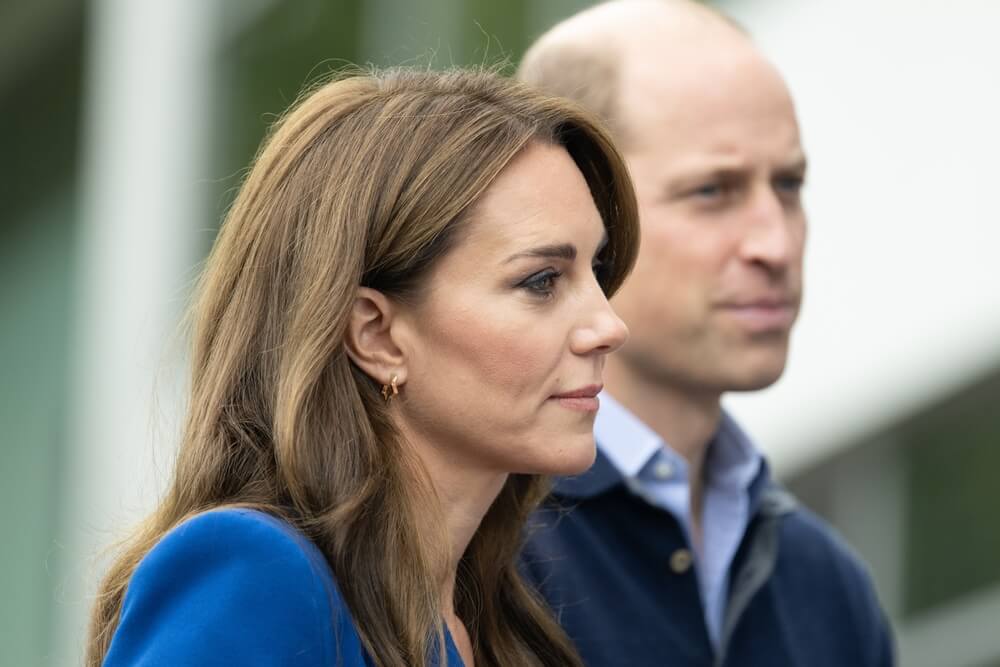PR and Royal-watchers were shocked – and chastened – to learn of Kate Middleton’s cancer diagnosis late last week. In a beautifully simple video message delivered as she sat on a bench against a spring backdrop, the Princess of Wales explained why she’d been out of the public eye. She shared that after tests showed the presence of cancer following her abdominal surgery in January, she was undertaking “preventative chemotherapy” on the advice of her medical team.
The heartfelt video statement instantly quelled the furious conspiracy-mongering that had consumed coverage of the Royal Family – at least for the time being. It also unleashed a wave of support for the Waleses from around the globe. Shortly after the video’s release, Kensington Palace posted a statement thanking the public for its response to her diagnosis and “the understanding of their request for privacy at this time.”
The Princess’s actions contrast with The Firm’s
The Princess clearly has the moral authority in this situation. And her statement was nearly perfect – candid, touching, yet deft, dignified and other-centered. Most moving, she ended the video by encouraging all whose lives are touched by cancer (and whose aren’t?) to not “lose faith or hope. You are not alone.” It was a powerful message of solidarity, and it resonated. The global community has rallied to the side of the Princess, and rightly so.
Yet the interlude was only a pause in the struggle between the Royal Family’s PR operation and the rumors and backlash that have dogged its nearly every move. “The Firm” has unfortunately made many self-inflicted wounds even as many sympathize with its travails.
One problem? The Palace seems to have ignored some simple tenets of PR and communications, as well as the reality of being royal.
Do not expect privacy
The harsh truth about being a member of the Royal Family is that you can’t expect any privacy. And by now, the Palace surely knows that the tabloid press can’t and won’t play fair. This is particularly true a scant 18 months after the death of its longest-reigning monarch, and in the wake of the news that her heir, King Charles, also has cancer.
Kate’s explanation that the family needed time to explain the situation to their children was very understandable — for any other family. It has made her extremely sympathetic as a mother of three. But the delay in explaining the Princess’s condition to the public had repercussions. A more timely disclosure could have prevented a couple of weeks of speculation about everything from extramarital affairs to plastic surgery.
Anticipate scrutiny
The much-discussed photoshopped image of the family that was released for UK Mother’s Day was an unforced error by the Palace. Was it a scandal that the Princess had touched up family images? No, but in this case, it was clumsy and poorly timed. Catherine seemed gracious in taking responsibility for it, but her admission only made things worse. To most observers it seemed that the Palace intended to hide something from the public, stoking existing suspicion. The public, and the press, naturally sensed that something wasn’t being shared, which only fueled more skepticism and fed rumors.
Be proactive, not reactive
The photoshopped image was released on March 10 by the Palace and “killed” by news agencies later that same day due to obvious alterations. The Princess’s apology came the next day, in response to the furor. Yet the full story wasn’t disclosed until March 24. Yes, it takes time to grapple with a public disclosure of personal health news, but two weeks is an unacceptably long time. Again, conspiracies that could have been nipped in the bud instead ran wild.
Consider the bigger picture
Despite the obvious bad faith of much of the British tabloid press, not to mention conspiracists on social media platforms, the Palace must look at the situation for what it is. Two members of the British Royal Family have been diagnosed with cancer. That’s a potential crisis, or at least it signals a period of serious uncertainty about the future.
Social chatter and tabloid culture will always fill a vacuum. This isn’t new, and the Palace surely knows it. What’s more, in uncertain times, people want reassurance. If total reassurance isn’t possible, they need verified information. In other words, when the stakes are high, offer the truth.
